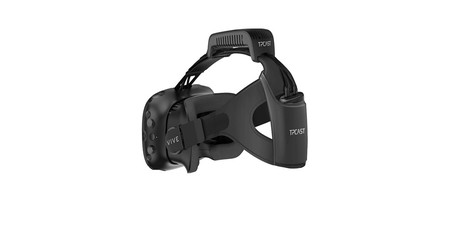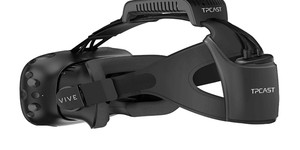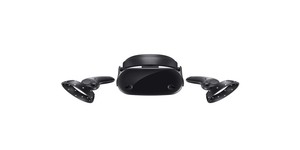TPCast 2.0 brings 1ms latency, company claims
January 17, 2018 | 10:55
Companies: #htc #oculus-rift #tpcast #vive

TPCast has announced rough specifications for its second-generation virtual reality headset wireless adapters, claiming use of a 'new generation ultra-low-latency codec technology' which offers a maximum latency of 1ms.
Originally unveiled as a partnership with HTC back in 2016 and launched the year after, the original TPCast kit adds a battery and wireless transceiver to HTC's Vive virtual reality headset for easier room-scale use. The company's visions go further, however, with a partnership with Huawei on 5G truly-mobile 'cloud VR' devices - but first, it's using that technology to improve its Vive accessory.
TPCast 2.0, the company promises, is a considerable improvement over its predecessor through the use of an 'ultra-low-latency codec, capable of compressing VR content on a 50:1 ratio which significantly reduces the bandwidth required for video transmission while bounding the latency to 1ms'. This is key: Virtual reality is inherently latency-restricted, with any delay between the movement of the player's headset and the subsequent update of the field of view being a sure-fire ticket to the vomit comet. It's an issue which has previously stymied attempts to create wireless headsets, leading to off-the-wall solutions including backpack-borne, battery-powered gaming PCs.
The new implementation also includes wider compatibility: TPCast claims its second-generation wireless platforms supports HTC's Vive, the rival Oculus Rift, Windows Mixed Reality devices, and 'other mainstream headsets', using a choice of WiGig or 802.11ay wireless communications. The company has also pledged 'mid-range' options, expanding the distance the user can stray from the transmitter, which uses Wi-Fi or 802.11ax, while the company's promised cloud-powered long-range variant will use 5G or 4.5G cellular networking.
'The new TPCast 2.0 announcement is another milestone for TPCast's innovation. As a leader in the Global Wireless VR space, TPCast is committed to moving the industry forward with its technological advancements,' crowed TPCast chief executive Michael Liu at the unveiling. 'The newest technology in wireless VR, TPCast 2.0 has the highest performance, the broadest scalability, and the most mature product capabilities. TPCast 2.0's support for a full range of mainstream headsets in various deployment ranges allows TPCast to continue with its vision of unleashing the VR world.'
Sadly, TPCast's announcement has concentrated solely on the underlying technologies with no word yet as to when the first TPCast 2.0-powered wireless VR adapter will hit the market, nor at what price.

MSI MPG Velox 100R Chassis Review
October 14 2021 | 15:04








Want to comment? Please log in.